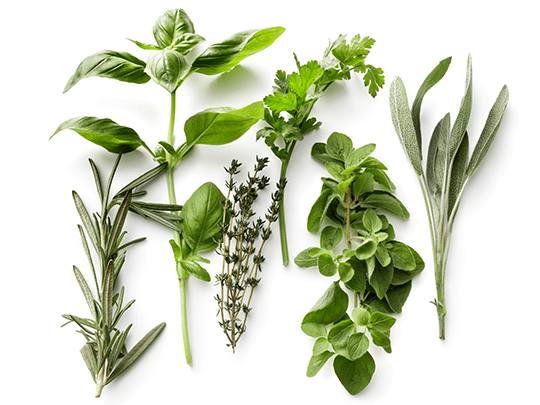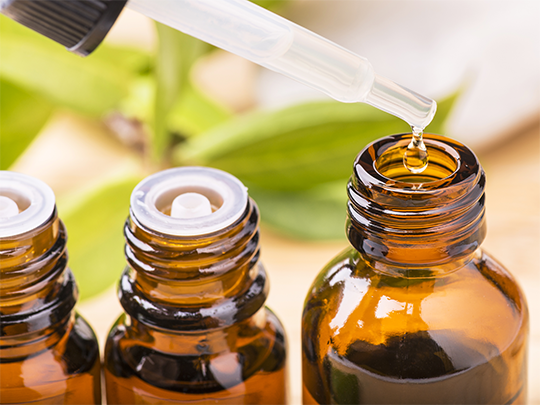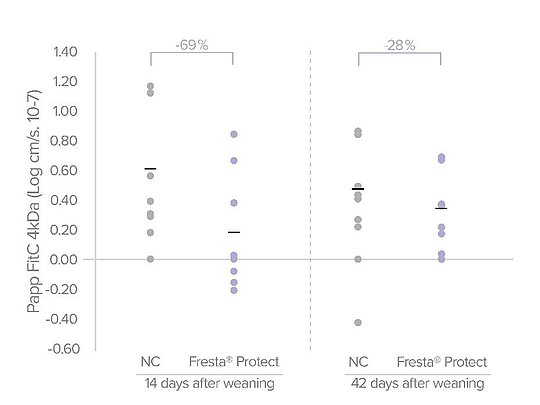How to counteract oxidative stress with phytogenics - Part 2
The ever current topic of oxidative stress in farm animals and the possible resulting performance losses and higher susceptibility of animals to diseases, was taken up in our latest article. In part 1, we explained oxidative stress, how it comes about and how one can counteract. However, we have still kept one possible solution against oxidative stress in livestock, which we'd like to to present to you now. Probably a very precious one, as this solution comes up with the power of nature. A power that is well known to be amazing, isn't it?
Phytogenic feed additives on the fast lane

Today, evidence on the beneficial effects due to the application of natural phytogenic additives as antioxidants is increasing. This is something we have known about human nutrition for years. Diets rich in vegetables and fruits have increased antioxidants' intake and thereby reduce oxidative stress and inflammation, thus minimizing the risk of developing cardiovascular diseases.
Phytogenic feed additives (PFA) contain various biologically active substances like essential oils, flavonoids, pungent and bitter substances, tannins, and saponins and represent a natural and innovative solution to today's challenges in livestock production. Phytogenic feed additives show clear potential to reduce oxidative stress. Recent literature and research data indicate a higher efficacy of such natural antioxidants than the customarily used synthetic antioxidants or vitamin E.
How PFAs can provide support in counteracting oxidative stress
There are two different modes of action described for the anti-oxidative effect of PFA, especially for essential oils. Depending on the molecular structure, essential oils can scavenge reactive oxygen species and thereby neutralize them. Secondly, essential oils can support the endogenous antioxidant system by increasing the production of antioxidant enzymes. Superoxidase dismutase (SOD) and Glutathione peroxidase (GSH-PX) are necessary antioxidant enzymes that inactivate harmful ROS. A study on broilers has shown that the addition of a specific PFA, Biostrong® 510, stimulates the synthesis of these enzymes, thereby supporting the endogenous antioxidant system (Figure 1).
Figure 1: Biostrong® 510 significantly increase Superoxidase dismutase (SOD) and Glutathion peroxidase (GSH-PX) activity in broilers (Source: Delacon research)

Additional to the effects on antioxidant enzymes, essential oils with phenolic structures can scavenge ROS, reducing the risk of some diseases like cardiovascular disease, liver dysfunction, and immune system decline directly. With an increasing number of phenolic structures in essential oils, the antioxidant capacity increases. Examples of essential oils with a high content of phenolic structures are thymol, carvacrol, eugenol, and cinnamaldehyde.
As a result of less oxidative stress in the intestine, it showed that the addition of a specific phytogenic combination, Fresta® Protect, improves intestinal integrity in piglets after weaning as indicated in Figure 2.

Figure 2: Effect of diet on distal small intestinal apparent permeability for the macromolecular marker FITC-dextran 4kDA (Papp FITC4kDA, log cm/s.10-7) in piglets fed the experimental diets on day 14 or day 42 (only Papp FD4) (n=10)
To sum up…
Oxidative stress is not associated with a disease but can result in performance losses and higher susceptibility of animals to diseases. This results in an economic impact on livestock production. Recently, much attention has been paid to nutritional strategies to counteract oxidative stress. One promising way is the supplementation with phytogenic feed additives, as these active substances have shown immense potential for their anti-oxidative properties and efficacy.

Anja Keiner
After her scientific studies dealing with the effect of phytogenic substances on piglets’ health and performance at the Justus-Liebig university in Germany, Anja was eager to start her professional career with Delacon. Her experience in sales is an important backbone for the previous role as Product Manager Swine, but also for her current position as Global Technical Manager Swine and Poultry.










